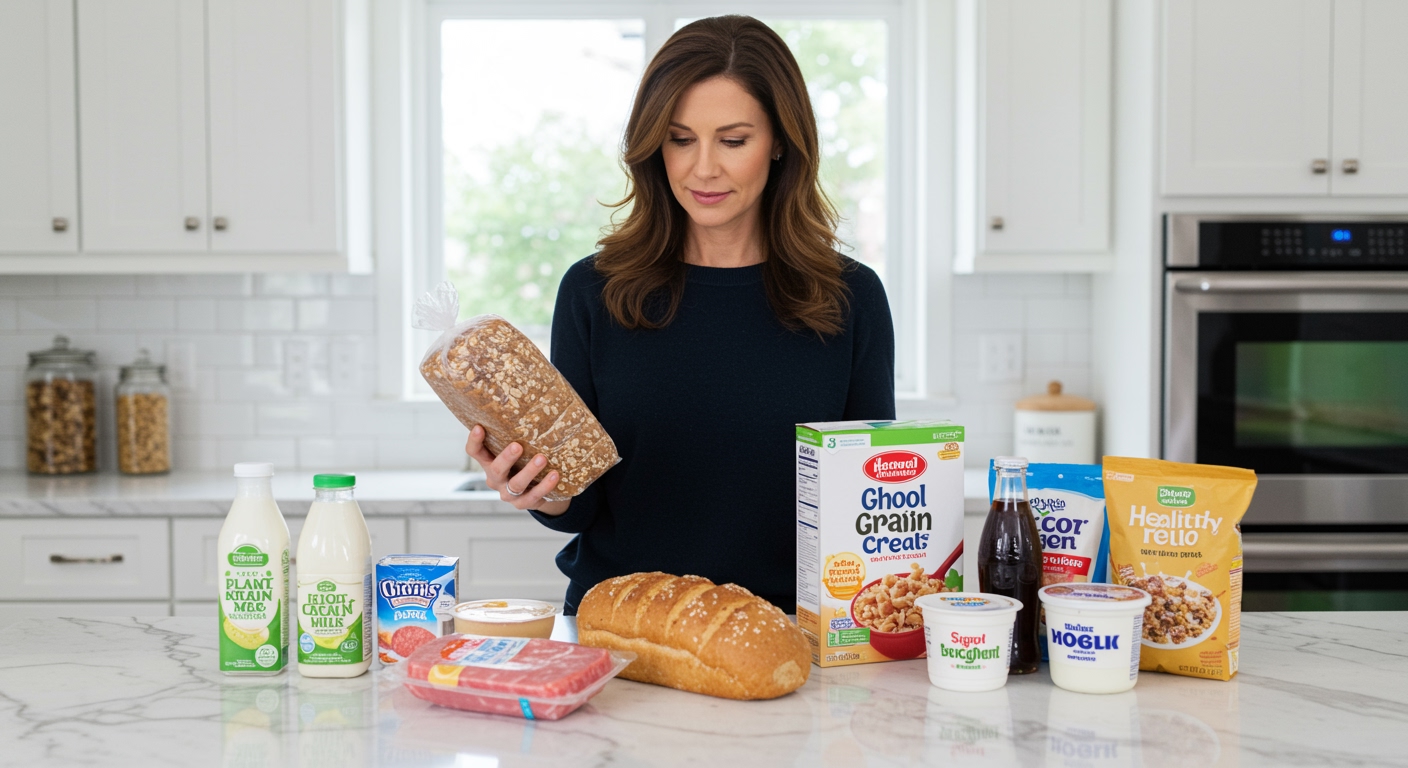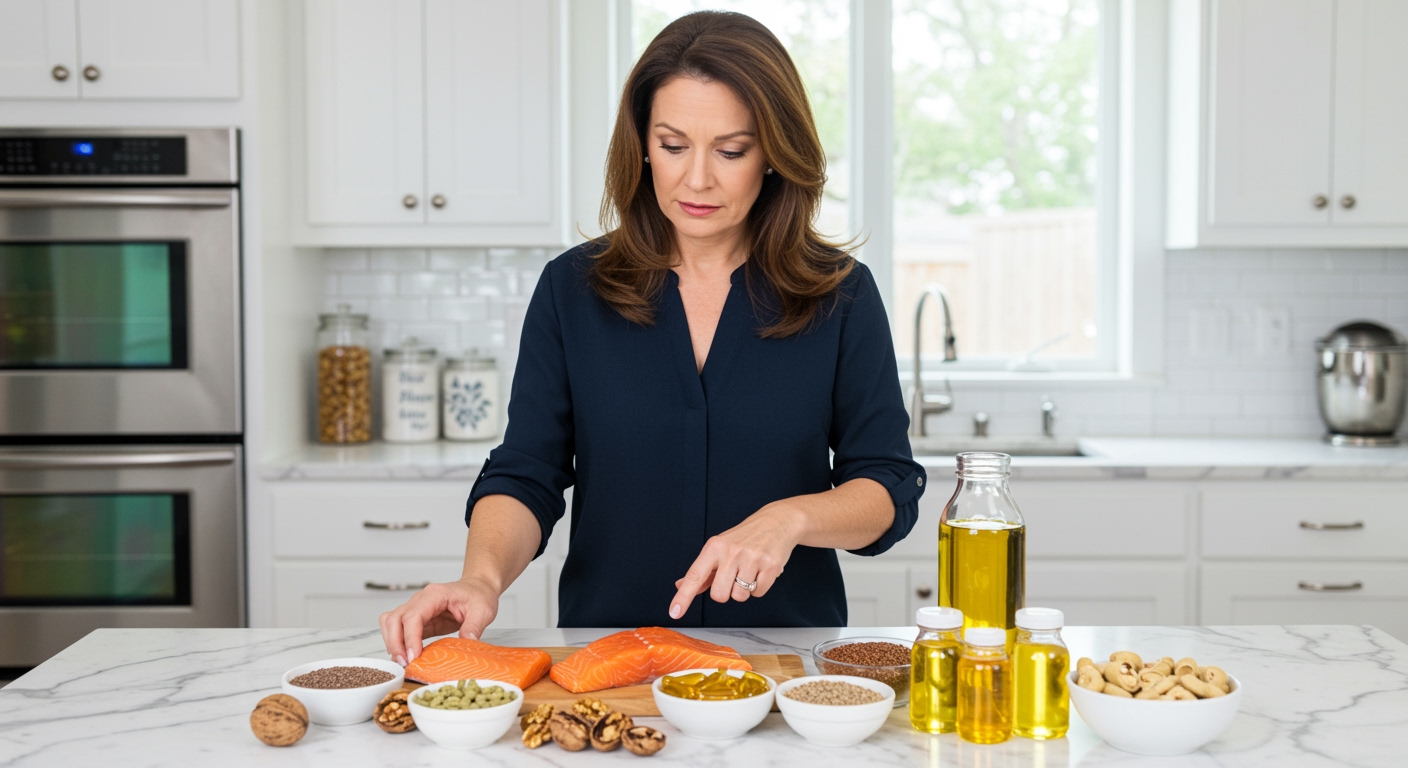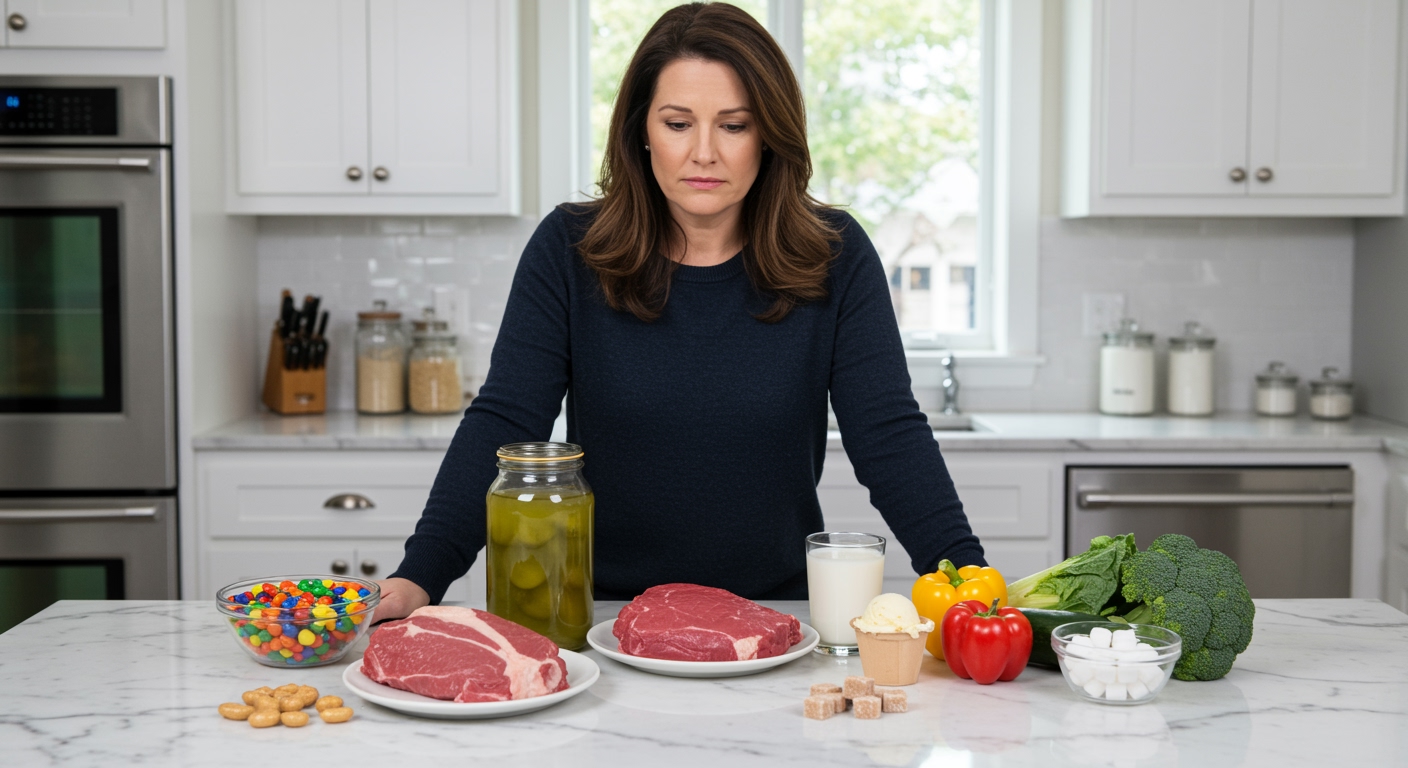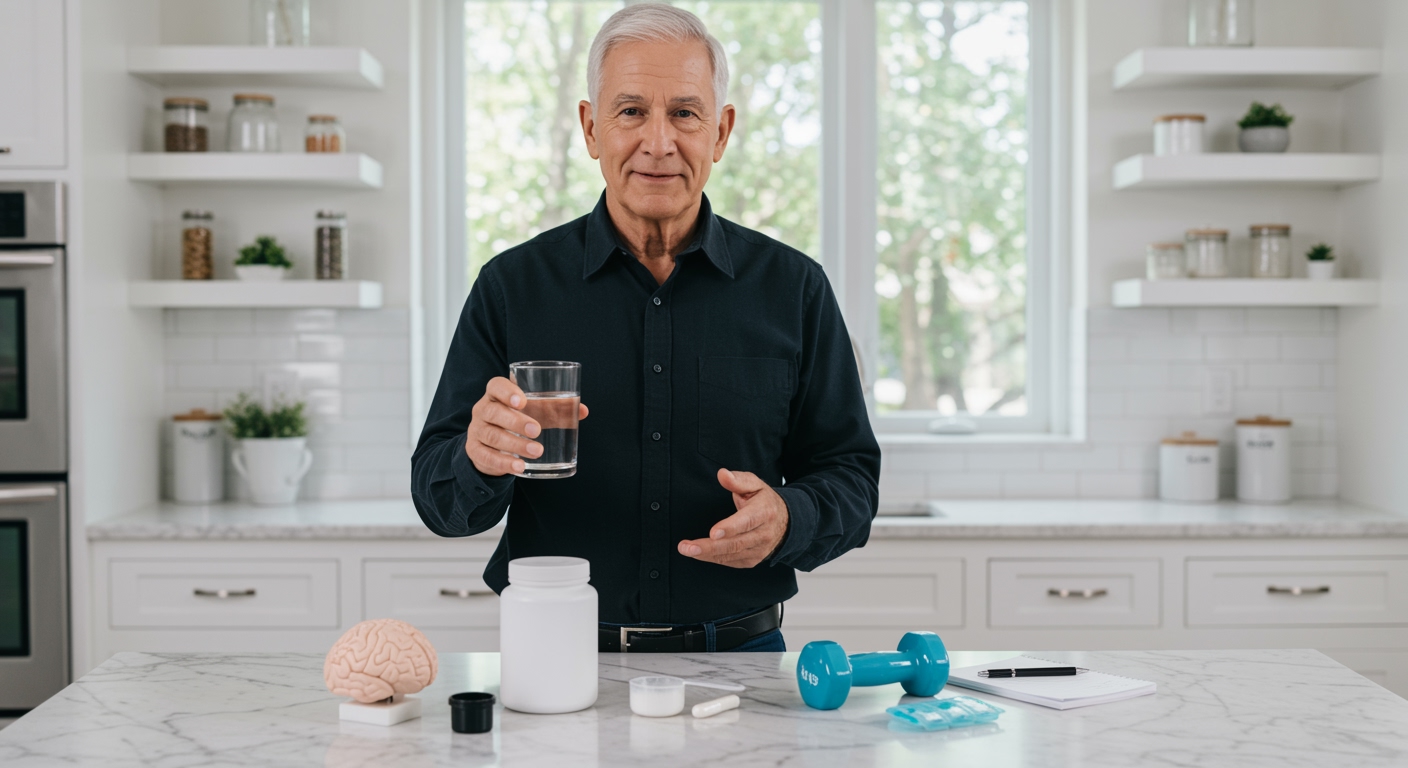✪ Key Highlight: New research shows whole grain breads and plant-based alternatives are safe ultra-processed foods unlike sugary drinks.
Introduction
You have been told that all ultra-processed foods will destroy your health.
A groundbreaking study published in The Lancet Regional Health – Europe challenges this belief by analyzing nearly 266,000 people across seven European countries.
Hi, I’m Abdur, your nutrition coach and today I’m going to analyze this revolutionary research that proves not all ultra-processed foods pose equal health risks.
What Makes Some Ultra-Processed Foods Different?
The research team used the NOVA classification system to separate different types of ultra-processed foods based on their processing levels.
Dr. Fernanda Rauber, the study’s lead author, explained that ultra-processed foods are not a uniform group.
Some foods like whole-grain breads and plant-based alternatives can actually be part of a healthy diet.
The key difference lies in the nutritional quality and ingredients used in these products.
Foods made with whole grains, legumes, and fortified with vitamins show completely different health outcomes than those loaded with sugar and artificial additives.
This finding represents a major shift from blanket warnings about all processed foods.
✪ Fact: Ultra-processed foods range from packaged breads to ready-to-eat meals with vastly different nutritional profiles.
Which Ultra-Processed Foods Actually Harm Your Health?
The study revealed that animal-based processed foods pose the highest health risks.
Processed meats, sugary drinks, and artificially sweetened products were linked to higher rates of early death and chronic diseases.
These foods typically contain high levels of sodium, unhealthy fats, and added sugars that trigger inflammation in your body.
Dr. Carlos Monteiro emphasized that we should focus on reducing consumption of the most harmful types rather than demonizing all ultra-processed foods.
Snacks high in salt, fat, and sugar create metabolic disruption that leads to insulin resistance and cardiovascular problems.
The research showed clear connections between these specific food categories and increased disease risk.
✪ Pro Tip: Always check ingredient lists to identify foods high in added sugars, sodium, and unhealthy fats.
Can Whole Grain Breads And Plant-Based Foods Be Healthy?
The surprising finding was that whole-grain breads, breakfast cereals, and plant-based meat alternatives showed little or no negative health effects.
These foods often contain beneficial nutrients like fiber, protein, and essential vitamins that support your health.
Many fortified cereals provide important nutrients like B vitamins, iron, and folate that people might otherwise lack in their diets.
Plant-based alternatives often use legumes and whole grains as primary ingredients, which offer complete proteins and dietary fiber.
The processing methods used for these foods typically preserve or enhance their nutritional value rather than destroying it.
This research supports the idea that nutritional quality matters just as much as processing level when evaluating food safety.
✪ Note: Processing can actually improve nutrient availability in some whole grain and plant-based products.
How Should This Change Your Food Choices?
This research suggests that public health guidelines need to become more specific rather than giving blanket warnings.
Instead of avoiding all ultra-processed foods, you should focus on cutting back on the worst offenders while allowing room for healthier options.
The FDA and USDA are working to create a uniform definition of ultra-processed foods to help consumers make better choices.
This approach makes it easier for families to follow dietary advice and make sustainable changes to their eating habits.
In the United States, more than half of all calories consumed at home come from ultra-processed foods, making complete avoidance unrealistic.
Children get over 60% of their daily calories from these products, highlighting the need for better guidance rather than elimination.
By focusing on quality within the ultra-processed category, people can take practical steps to improve their health without feeling overwhelmed.
✪ Pro Tip: Look for ultra-processed foods made with whole grains, legumes, and minimal added sugars for healthier options.
The Bottom Line
This groundbreaking research proves that not all ultra-processed foods deserve the same health warnings.
Smart food choices come from reading ingredients, not avoiding entire food categories.
I would love to hear your thoughts about this research and how it might change your approach to processed foods – please share your questions or experiences in the comments below.
References
At NutritionCrown, we use quality and credible sources to ensure our content is accurate and trustworthy. Below are the sources referenced in creating this article:
- FDA: Ultra-Processed Foods
- PMC: Ultra-processed foods and health outcomes
- Stanford Medicine: Ultra-processed food: five things to know
- American College of Cardiology: Eating Ultra-Processed Foods May Harm Your Health
- USDA: HHS, FDA and USDA Address Health Risks Ultra-Processed Foods





